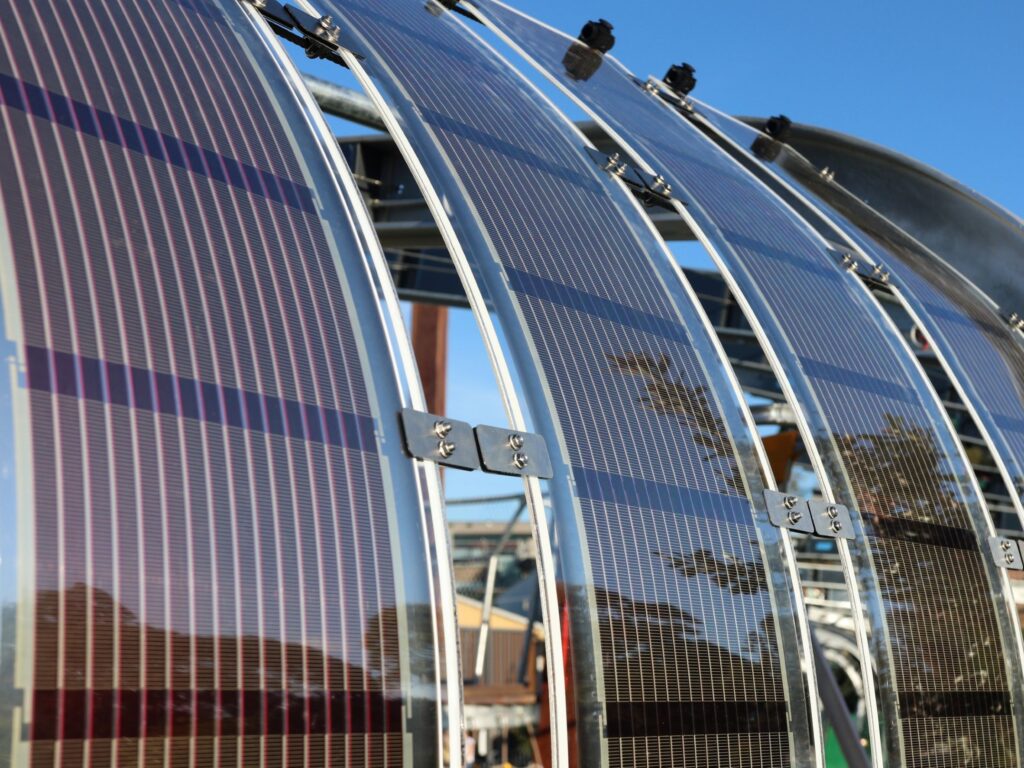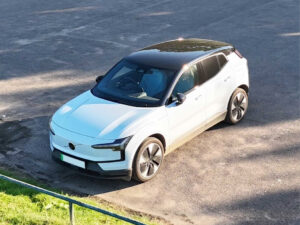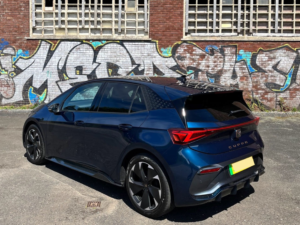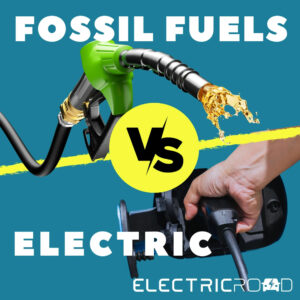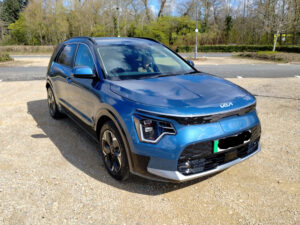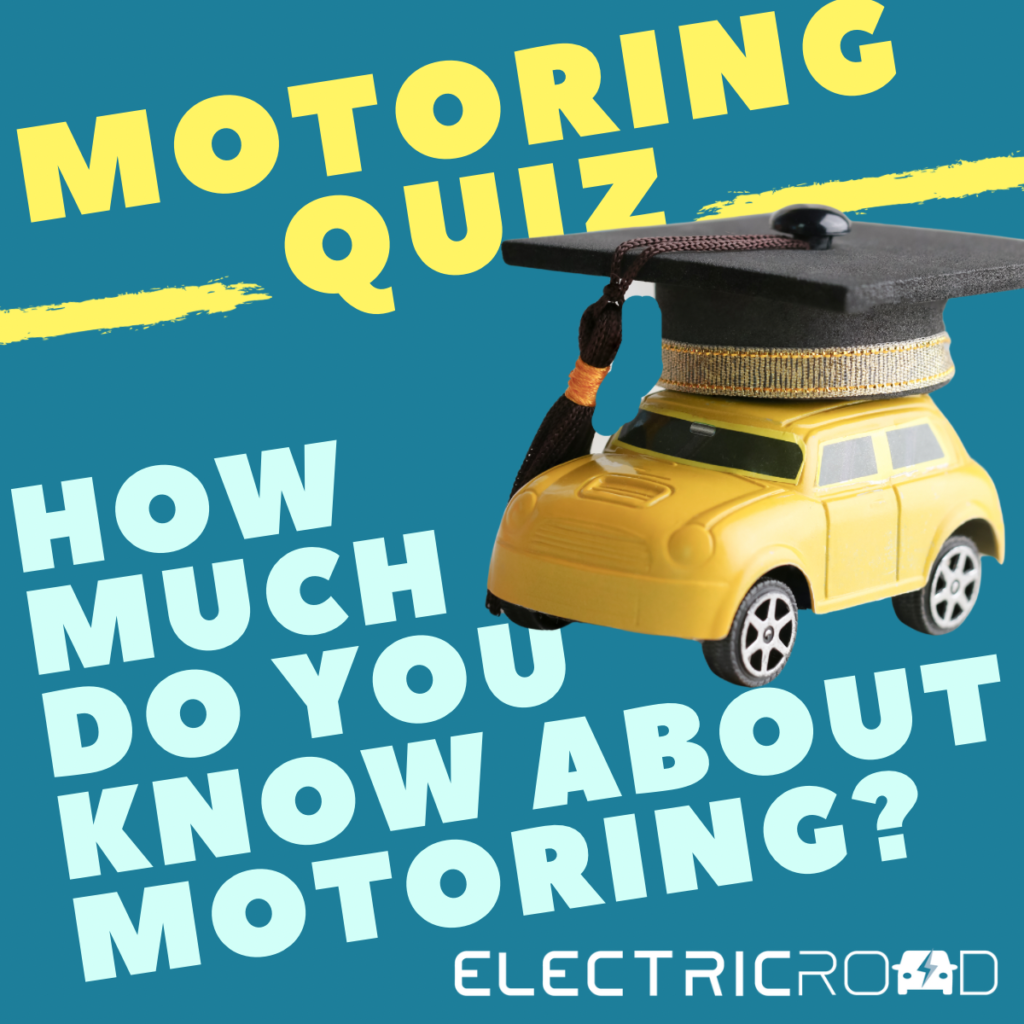Two Britons based on opposite sides of the planet, but with a shared passion, are collaborating on an ambitious solar project to showcase a radical new way to generate renewable energy, which has the potential to deliver a very low cost and flexible energy source.
Liverpool entrepreneur Stuart McBain, (58) founder of Charge Around Australia, has partnered with Professor Paul Dastoor, a Cambridge physicist, originally from Maidenhead, Berkshire and now living in New South Wales, Australia. Paul has developed highly innovative printed solar panels, which are ultra-flexible, ultra-thin and ultra-lightweight and incredibly cheap to produce (approximately £5 per square metre).
The sheets, made largely from recycled PET plastic, widely used to make convenience-sized soft drink bottles, can in turn be recycled, unlike traditional solar panels which end up in landfill. To demonstrate the flexibility of this new technology, Stuart McBain, who owns his own accountancy practice, will undertake a unique challenge. He will drive 9,380 miles (15,097 km), around the entire coast of Australia, in a 100% electric vehicle proving how portable printed solar cell technology enables charging off grid, collecting free energy from the sun in some of the most remote places on the planet.
Sign-up to Electric Road now to receive a FREE ‘Guide to the Best Electric Cars’, a weekly Newsletter and to win some great prizes!
Stuart plans to start the trip in September 2022 in Newcastle, Australia (72 miles or 117 km north of Sydney) and travel anti-clockwise around the continent. He will use the solar technology for approximately half to three quarters of the journey and rely on charging points where he can. He will have a support vehicle with him for the duration of the trip.
The panels contain lightweight solar cells known as organic photovoltaics (OPVs), developed at The University of Newcastle in Australia, which harness and store the sun’s energy.

Stuart McBain, founder of Charge Around Australia (CAA) said: “This is the most significant development in solar energy in a generation. We have the potential to deliver the world’s most affordable energy. We could change the way the world produces electricity. We have found a low-cost solution by harvesting the free energy from the sun. The trip around the coast of Australia will be a major milestone in the quest to solve the world’s energy crisis.
This will be the first mobile demonstration of 2D printed solar technology that can be utilised to power a car. We are very excited to be pioneering this product which could be a game-changer when it comes to sustainable energy. The sheets can be printed at high speed and extremely low cost using a conventional printing machine and electronic ink. The one Professor Dastoor has used for this project used to print wine labels!”
The epic trip will take Stuart three months as the car needs six hours of sunlight to fully charge, meaning he’s limited to driving for two hours a day. To charge the vehicle Stuart will take with him a 20m x20m solar cell made up of printed solar material and weighing more than 45kg, the size of a suitcase, that can be rolled up and fitted into the boot of the car.
Professor Paul Dastoor, a world leader in organic electronics, based at Australia’s University of Newcastle explained: “The greatest issue the world is facing is energy production. We have billions of people who still have no access to energy or electrical power at all and the effects of climate change being felt world-wide. Imagine a world where any surface in any location can become an opportunity for sustainable energy generation. Charge Around Australia will help us bring attention to these issues and understand how new, adaptable technologies can change the script on these critical global challenges.
This will be the first time our printed solar panels have been used to power an electric vehicle, let alone as a portable, retractable system that moves with the car, so it’s very much an intrepid venture in every sense. My team and I are incredibly excited to be working with Stuart to demonstrate thought-provoking and revolutionary concepts that help to decarbonise our world.”
To find out more visit chargearoundaustralia.com, follow @ChargeAroundOz on Twitter or like the Charge Around Australia Facebook page. For information on volunteering, sponsorship or supporting the project e-mail: sponsor@chargearoundaustralia.com.


